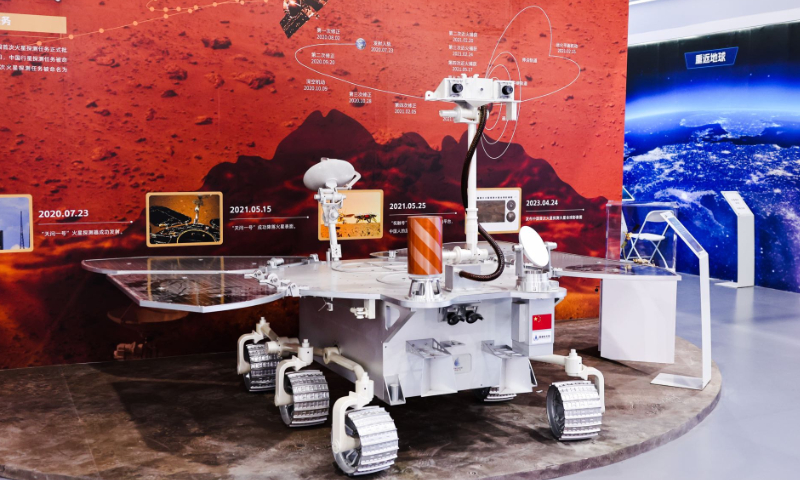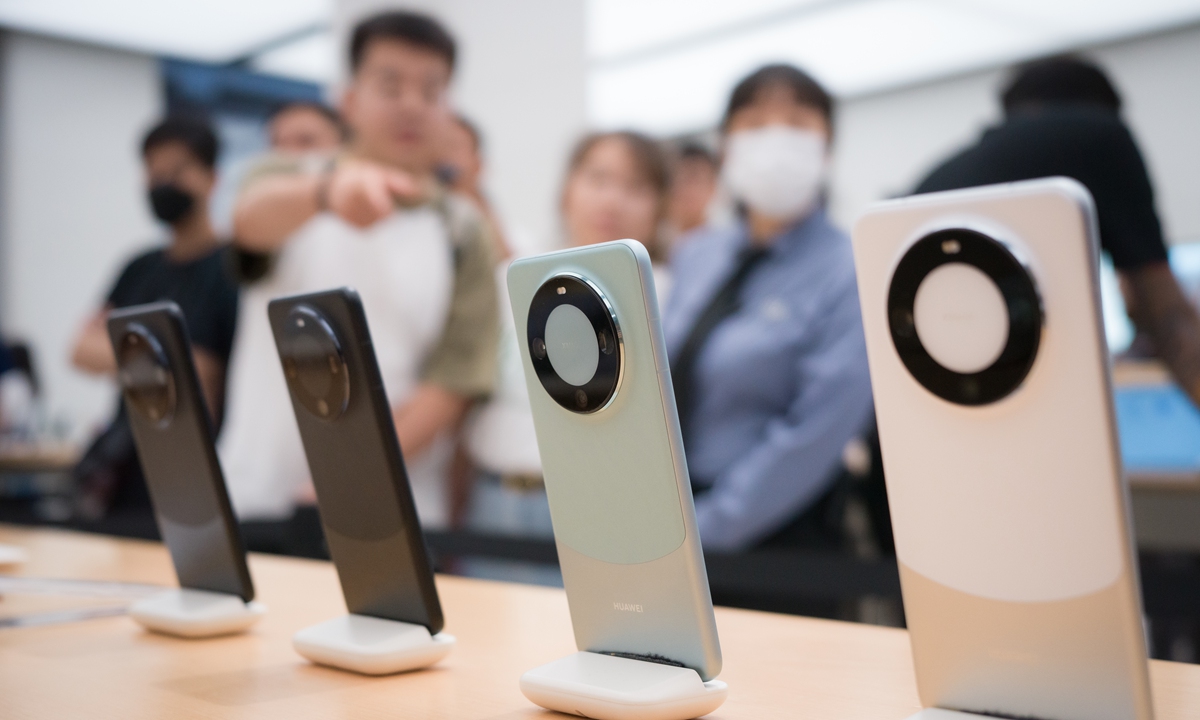UN Secretary General Antonio Guterres speaks during the General Debate of the United Nations General Assembly at the UN headquarters in New York City on September 23, 2025. Photo: AFP
The General Debate of the UN General Assembly (UNGA)'s 80th Session opened on Tuesday local time at UN headquarters in New York. This year marks the 80th anniversary of the founding of the UN, a moment that should have been celebratory. Yet, judging from the very first day, words such as "disagreements" and "disputes" dominated public opinion. The Washington Post noted that beyond the financial strain because of the refusal of the US to make any payments to its regular budget, the UN is facing "crises that have caused deepening divisions." In his address, UN Secretary-General António Guterres bluntly stated that "multipolarity without effective multilateral institutions courts chaos" and stressed that "international cooperation is not naiveté." Behind these divisions lies the deficit in global governance and the urgent need for reform and improvement.
Amid the heated discussions at this year's UNGA, the international community once again witnessed a direct clash between two approaches to governance. On one side lies the logic of hegemony and unilateral action, which treats multilateral mechanisms as mere tools of power; on the other stands the path of genuine multilateralism, grounded in sovereign equality, solidarity, and cooperation. What international media have described as a "fierce debate" at the UN reflects a sobering reality: Outdated governance models can no longer address global challenges. The current international system suffers from three major shortcomings - serious underrepresentation of the Global South, erosion of authoritativeness, and urgent need for greater effectiveness - making systemic reform both urgent and imperative.
If one were to distill the hopes, expectations, and questions voiced by representatives at the UNGA, they would converge on a defining question of our time: What kind of global governance system should be built, and how can it be reformed and improved? 80 years ago, nations drew lessons from the ruins of World War II, founded the UN, and embarked on a new experiment in global governance. Over the past 80 years, the UN has adopted more than 40,000 resolutions and decisions, building a system of rules for global governance and helping to maintain overall peace in the world, which is no small feat. The successful experience is evident: Effective global governance does not come from the "protection of a world police," but from broad consensus on peace, democracy, development, cooperation, and win-win outcomes, as well as principles such as peaceful coexistence, collective security, the democratization of international relations, and the peaceful settlement of disputes.
The more these consensuses and principles are strengthened, the smoother coordination and cooperation among the international community, especially major powers, will become, and the greater the role the UN will be able to play. Conversely, when these principles are undermined, the UN's role is constrained. Therefore, the key to addressing today's many hotspot issues is not "whether the UN is still needed" as some claim. In fact, the more turbulent and intertwined the international situation becomes, the more important it is to uphold the UN's authority, to reaffirm its founding mission, and to renew the commitment to the purposes and principles of the UN Charter. This year's General Assembly saw the denial of the UN's role, the rejection of multilateralism, and the dismissal of the current international order expressed by a few countries, which sparked wide controversy and even "shock," underscoring that peace and development remain the mainstream aspirations of the international community.
The international community must work together to ensure the UN keeps pace with the times. Reform, however, is not about tearing everything down and starting anew, but about making the UN more adaptable to the needs of today's world. The China-proposed Global Governance Initiative (GGI) comes at a critical moment when acts of great-power bullying are causing serious harm and severely undermining multilateral mechanisms such as the UN. It offers China's solutions for enhancing and improving global governance. The core concepts of adhering to sovereign equality, abiding by international rule of law, practicing multilateralism, advocating the people-centered approach, and focusing on taking real actions are in line with the purposes and principles of the UN Charter, resonating with the common expectations of the vast majority of countries. The initiative focuses on innovation and improvement, enhancing the effectiveness and implementation of the current international system and mechanisms, so that they better reflect changes in the international landscape and situation, respond more promptly and effectively to global challenges, and better safeguard the common interests of all countries.
Currently, unilateralism and protectionism are on the rise, severely impacting international development cooperation and weakening the momentum of global economic growth. To address the many contradictions and problems we face today, we should maintain a focus on development, fully promote growth, and work together to expand the development pie. The four global initiatives proposed by China has gained increasing international resonance precisely because it accurately addresses the strong desire of the international community for peace, development, and cooperation.
In a world filled with uncertainty, adhering to multilateralism and promoting the development of a global governance system toward a more equitable and reasonable direction is not only the shared responsibility of the international community but also an essential pathway to building a community with a shared future for humanity. This righteous path has gathered the collaborative efforts of more and more countries.
The "intense collisions" during the 80th session of the UNGA represent a profound inquiry from the times regarding global governance. The Eastern wisdom and practical pathways embodied in the GGI provide a clear direction for addressing the global governance deficit. While the transformation of the global governance system may be fraught with challenges, historical experience demonstrates that ideas aligned with the common interests of the majority of countries and in tune with the trend of peaceful development will ultimately gain widespread recognition and translate into real momentum.






